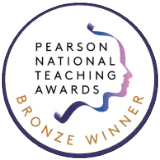The aim of our History curriculum is to ensure students share an enjoyment of learning and excitement for the past, whilst understanding its importance in shaping both the present and the future. Through engagement in scholarly debate and developing critical thinking, students are inspired to question the world around them and foster an appreciation for the value of history in everyday lives and community. Our students have the confidence to question and challenge ideas and opinions rather than to blindly accept opinion disguised as fact. By the end of Year 11, our students will have fostered a passion for learning and discovery. They will have secure, ‘powerful’ substantive knowledge which will enable them to engage with further study and help their understanding of the wider world. They will be independent thinkers who question the world around them and will be able to actively engage within scholarly debate.




